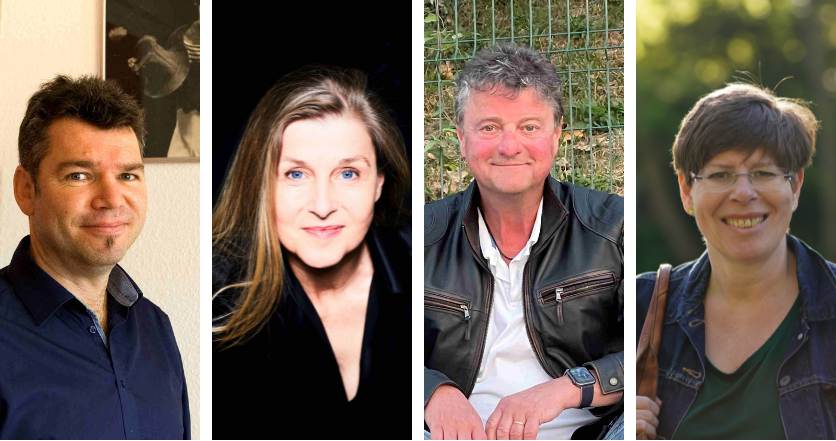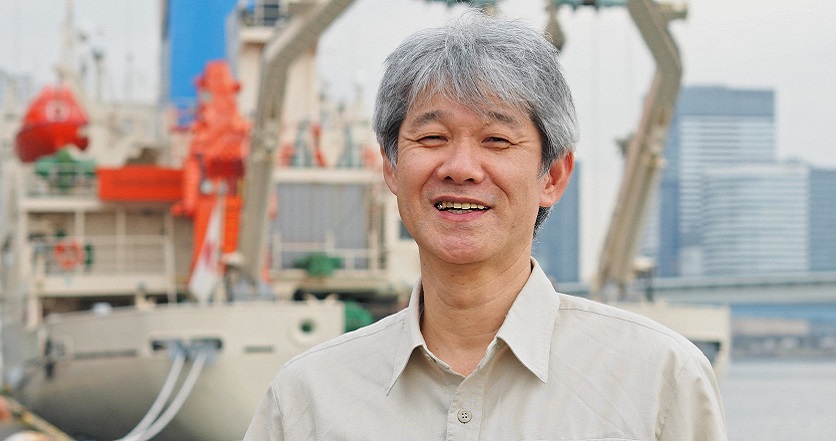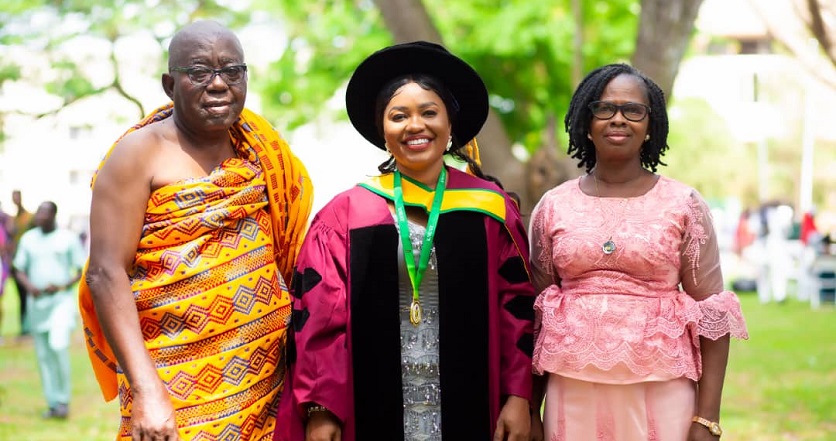Coping with Stress in a Tumultuous, Changing World
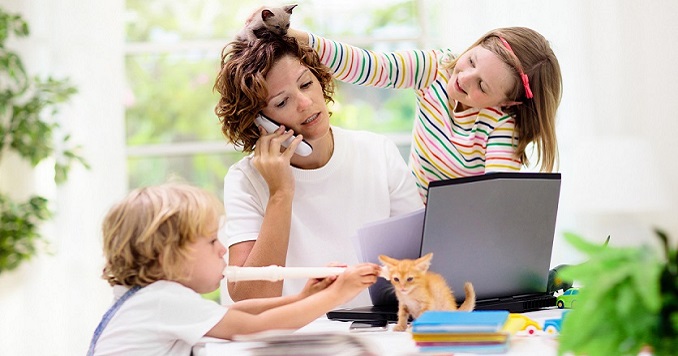
An online public discussion hosted by Soka Gakkai Singapore (SGS) offers valuable insights into coping with the stress created by these difficult times and shows how women in SGS are reaching out to the community to help others become more resilient.
Crisis into Opportunity
You may have come across this nugget of wisdom, that the Chinese term for crisis is composed of two characters, meaning “danger” and “opportunity.” It expresses the helpful idea that a crisis also offers the possibility for some kind of positive change or growth.
A good life is built with good relationships, which keep us happier and healthier.
The COVID-19 pandemic has certainly been a crisis on many levels, not least in the ways the lockdowns and change in work patterns have impacted family dynamics. From the perspective of turning crisis into opportunity—or “changing poison into medicine,” as encapsulated by the Buddhist concept expressing the same idea—the question of how to survive or endure this turbulent time becomes, rather, how can we harness this moment positively, how can we create value in crisis? This issue was explored in a public lecture and discussion hosted by Soka Gakkai Singapore (SGS) under the theme “Families Emerging Stronger: Overcoming Family Issues and Coping with Stress Arising from Covid.”
A World of Stress
The family, as the set of relationships that has existed from the start of one’s life, plays an important role in our ability to overcome the stress of life. It is also the venue where our stresses play out, as guest speaker for the session Poh Ee-Lyn, a senior social worker at the welfare organization Fei Yue Community Services, explained. We become particularly prone to stress in periods of change and transition. Ms. Poh described different types of stress, including:
- Psychological stress, which includes unpleasant and destructive emotions such as fear, grief, anxiety, self-criticism, a sense of being overwhelmed.
- Psychosocial stress, which can be triggered by family conflicts, difficulties in human relationships, loss of loved ones or a sense of isolation.
- Psychospiritual stress, which can be induced by the loss of meaning or purpose in life and not knowing what to do next.
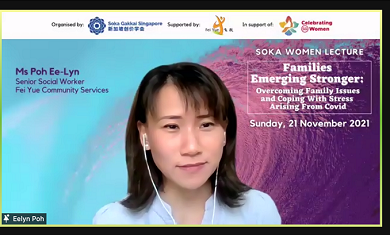
The huge changes to work, family and social life caused by the pandemic provided ample triggers for these stresses. Stress, however, does not only affect ourselves but those close to and around us. Picture, for example, a family member asking you to do something at a moment when you feel at the end of your tether. A usual spontaneous reaction to stress is anger. However, anger often masks an underlying emotion, such as a feeling of being overwhelmed, or a feeling of guilt at not being able to meet others’ expectations. Experts, therefore, recommend holding back from reacting immediately to stressful situations—simple strategies like taking a few deep breaths and waiting a minute and a half can be quite effectual.
Creating this kind of buffer gives us the opportunity to introspect and identify the feelings at the basis of our stress. We are then in a position to communicate our needs to others, using “I” statements, rather than responding reactively—“I am feeling overwhelmed right now and need a moment to myself,” as opposed to, “Why can’t you do it yourself!”
Learning this kind of self-management is vital because the self is our primary sphere of influence. We can’t always change our circumstances, but we can always adjust ourselves.
How one COPES: Managing Stress
Ms. Poh outlined a handy “COPES” strategy. First, Calm down before connecting. Then Observe your reactions, what you’re feeling and thinking. The “P” is for personal responsibility—taking responsibility for yourself and your well-being. It means focusing on what you can change. Mitigating stress in this way not only helps oneself, but has a direct, positive impact on one’s family and others.
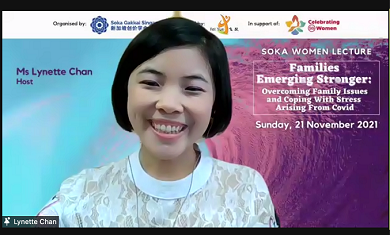
“E” is a reminder to explore options. The reason palm trees don’t often get blown over or uprooted by typhoons, where sturdier trees do, is because of the palm tree’s flexibility. Being adaptable and being open to new perspectives—able to bend—makes us less prone to stress.
Finally, “S” is about the importance of seeking the support of family, friends and also professionals. A good life is built with good relationships, which keep us happier and healthier.
We can’t always change our circumstances, but we can always adjust ourselves.
In her closing remarks, Sek Soon Heng, the women’s leader of SGS, referred to research published in The Lancet medical journal showing that COVID-19 has led to a sharp increase in anxiety and depression globally, and that women, who are more likely to be affected by the social and economic consequences of the pandemic, have been particularly affected.
Having more programs for women is not enough, she said. “I believe all of us have the courage and compassion to encourage another person who is suffering . . . through our care and concern and also through hope-filled dialogues and activities.”
Teresa Wong, a final-year student at the National University of Singapore who participated in the event, shared her take-aways: “It taught me how to cope with the various challenges and stresses that I may face by remaining calm. It also reinforces the importance of doing our human revolution to overcome hardships instead of trying to change our environment.”
The resolution of the SGS women is to continue to reach out to others, protecting the dignity of life in one’s immediate environment, so that no one is left behind in these difficult times.
(In March 2021, as the pandemic intensified, SGS embarked on a series of public discussions on “Strengthening Our Emotional Resilience Beyond Covid-19,” focusing an already running annual event series that began in 2019, the Soka Women Lecture, on the topic of mental health in this unprecedented time. The November 2021 session on “Families Emerging Stronger: Overcoming Family Issues and Coping with Stress Arising from Covid” is an example of the practical value of these explorations into how we can each become more resilient while helping others do the same.)





